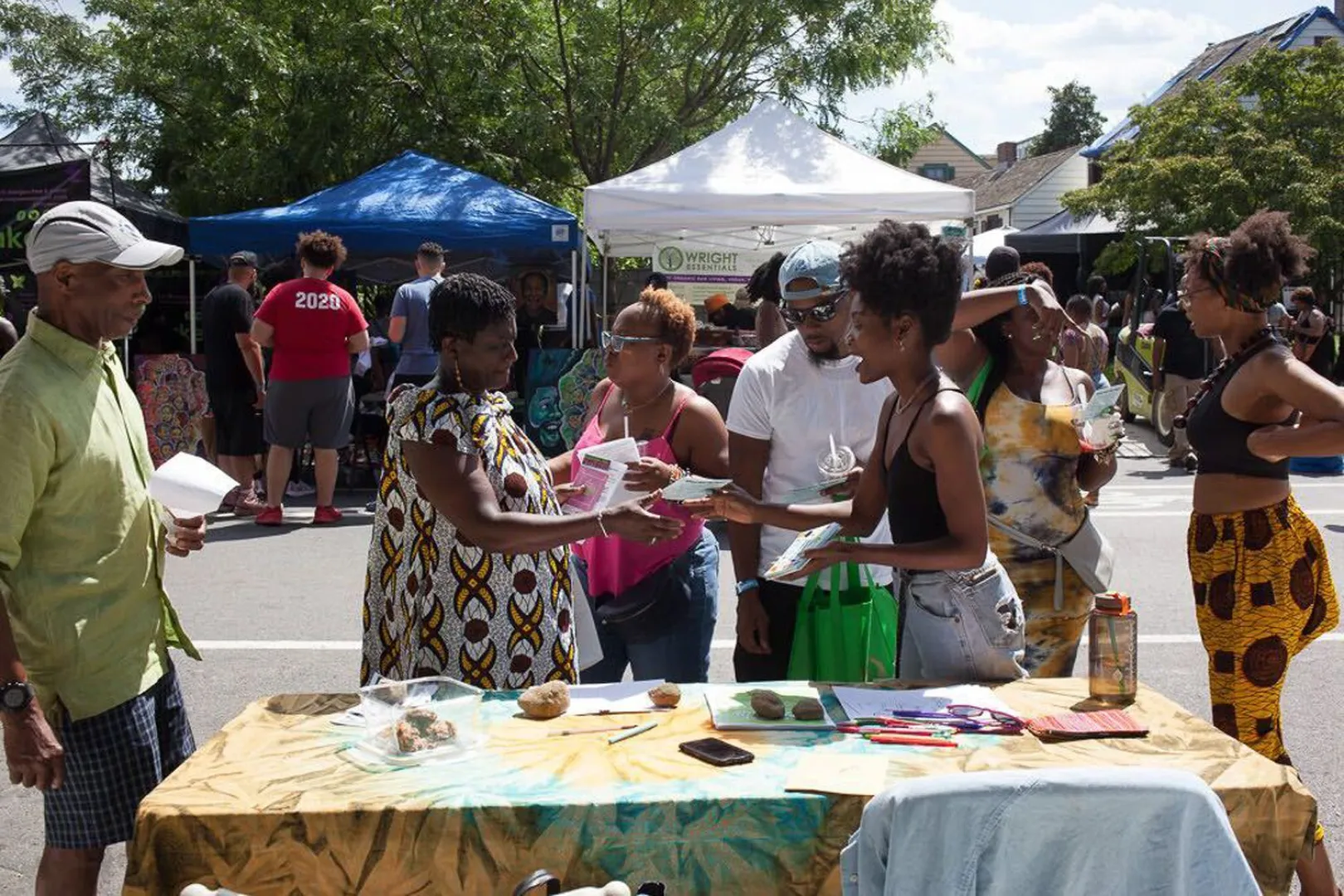Eric Adams says he wants to end ‘food apartheid.’ These Bed-Stuy residents are trying to do it themselves.
A Black-led grassroots project is trying to acquire space for a member-operated grocery store that could sell fresh food at affordable rates for residents.

 This article was originally published on by THE CITY.
This article was originally published on by THE CITY.
Eric Adams has already talked more about what he calls the city’s “food apartheid” than any mayor before him, arguing that many residents in Black communities are dying too soon because of a lack of access to healthy food.
It’s an issue he says is personal for him, after growing up in Central Brooklyn and Southeast Queens — areas that have long been neglected by supermarkets — and as he credits his own turn to a (mostly) vegan diet with saving his life. In his first two months in office, the mayor signed two executive orders upgrading standards for city agencies’ food handouts and advertisements, expanded vegan options in public schools, and launched six “plant-based lifestyle” medicine clinics across the city.

Brooklyn Boro
View MoreNew York City’s most populous borough, Brooklyn, is home to nearly 2.6 million residents. If Brooklyn were an independent city it would be the fourth largest city in the United States. While Brooklyn has become the epitome of ‘cool and hip’ in recent years, for those that were born here, raised families here and improved communities over the years, Brooklyn has never been ‘uncool’.